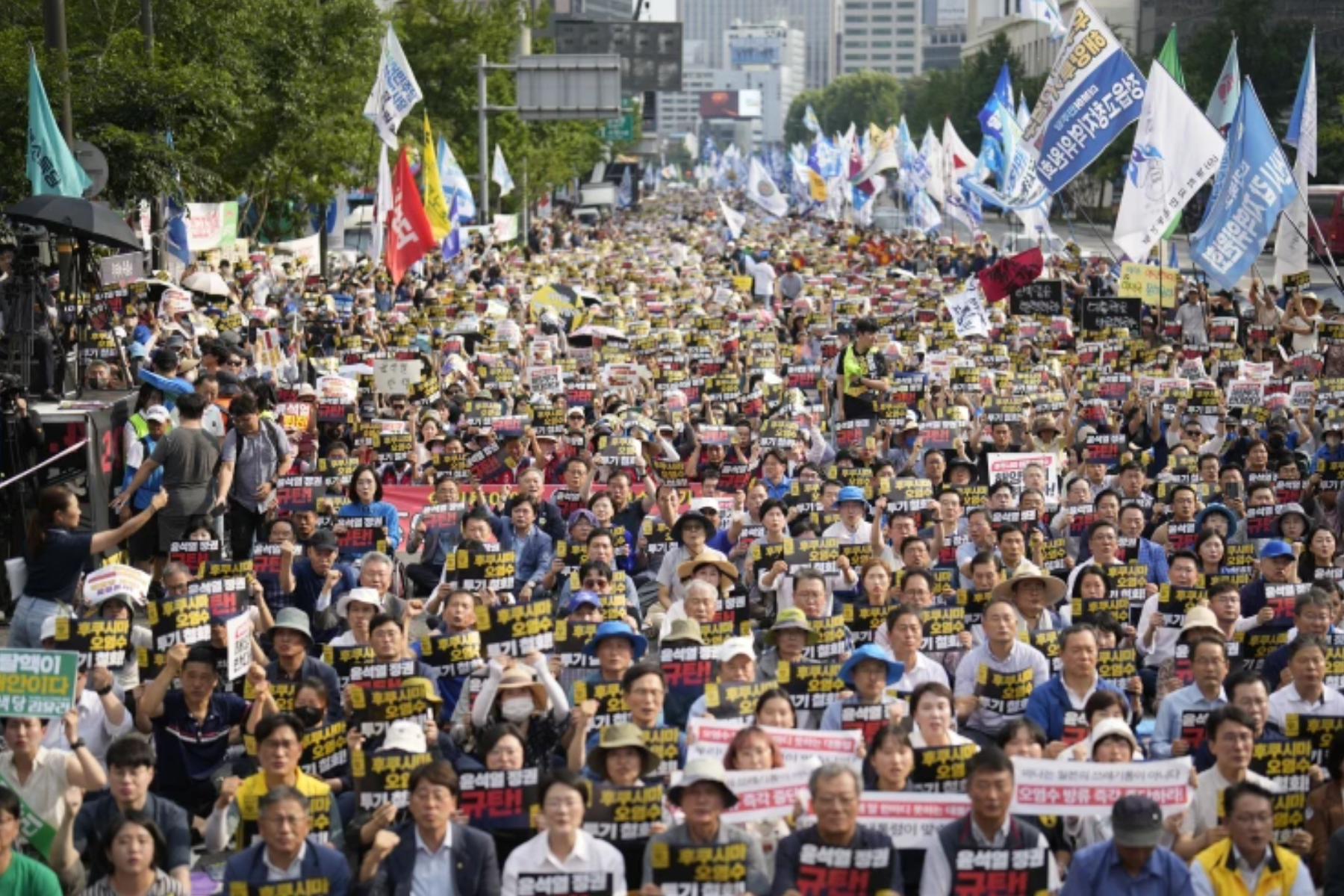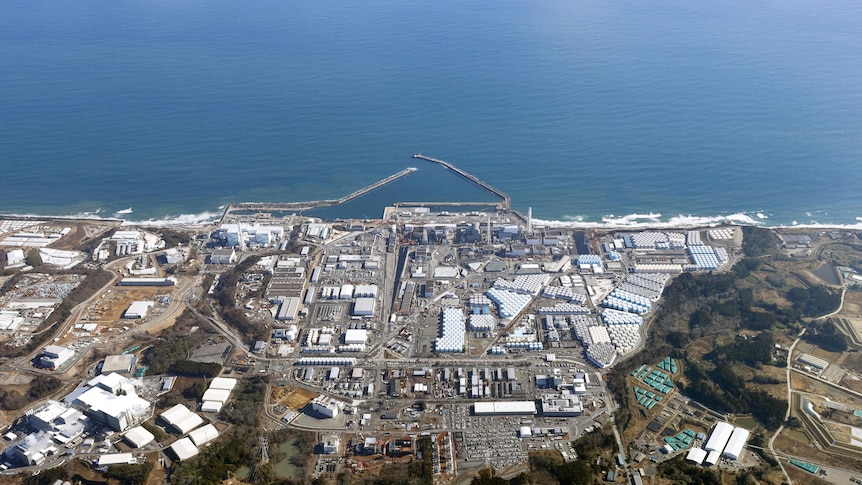Japan Requests China To Stop Harassing Citizens After Fukushima Wastewater Discharge
In response to Japan's release of treated radioactive wastewater from the damaged Fukushima nuclear power plant, japan requested china to stop harassing citizens after the fukushima wastewater discharge, including crank calls and stone-throwing.
Aug 30, 20232.2K Shares203.5K Views

In response to Japan's release of treated radioactive wastewater from the damaged Fukushima nuclear power plant, Japan requested china to stop harassing citizens after the Fukushima wastewater discharge, including crank calls and stone-throwing.
Japan Calls On China To Curb Harassment Amid Fukushima Wastewater Release
"I must say that it is regrettable," Kishida stated.
According to him, Vice Minister of Foreign Affairs Masataka Okano summoned China's envoy, Wu Jianghao, to request that the Chinese people act calmly and properly.
The dumping of treated wastewaterinto the ocean, which began on Thursday and is anticipated to last decades, has been vigorously opposed by fishing organizations and neighboring countries.
In reaction, China promptly prohibitedall imports of Japanese seafood. Thousands of South Koreans marched in protest of the discharge over the weekend.
Kishida said that harassment directed against Japan's embassies and consulates, as well as Japanese schools in China, has taken the form of prank phone calls and the throwing of stones.
The Chinese government has not reacted to Japan's proposal for a joint scientific debate on the release by professionals. According to him, a great number of nations acknowledge that the Japanese plan is both scientific and transparent.
According to NHK, government offices in Fukushima and the company that operates the nuclear facility have been receiving thousands of automated phone calls from China.
According to the report, a significant number of the callers yelled in Chinese, and some of them yelled "stupid" along with other swear words.
According to Japan's government and the plant operator, treated radioactive wastewater that has accumulated since the March 2011 accident at the nuclear plant, now totaling 134 million tons and stored in approximately 1,000 tanks, is taking up much of the plant area and must be removed to make room for facilities for the plant's cleanup and decommissioning, both of which are expected to take decades.
Kishida also promised Monday that he would do all possible to protect Japan's fisheries industry from the effects of China's import restriction and that he would announce assistance measures later this week.
On Sunday, Japan's Foreign Ministry issued a travel advice encouraging Japanese citizens to exercise particular caution in China, noting an increase in harassment and violent protests, and to avoid speaking loudly in Japanese to avoid drawing attention.
Domestically, the discharge proposal has been met with significant criticism from Japanese fishing groups, who fear it will further harm the reputation of Fukushima-area seafood.
The organizations are still working to repair the damage done to their operations by the meltdowns of three reactors at the power plant as a result of the tremendous earthquake and tsunami.
Since the release, all seawater and fish sampling results have been much below the stated safety limits.
On Monday, Economy and Industry Minister Yasutoshi Nishimura visited Fukushima to assist with damage control. He sampled locally caught surf clams and flounder with representatives from a retail business. Nishimura said:
“„I hope to promote delicious Fukushima seafood to as many people in and outside Japan as possible. While safely carrying out the release, we will be transparent in disclosing all data. That’s the best way to fight reputational damage.- Minister Yasutoshi Nishimura
Diplomacy With Sushi
According to CNN, the release of treated radioactive water from Fukushima triggered a rapid and vehement response from Chinese authorities, who announced a ban on all Japanese seafood imports on Thursday.
Many social media users have gone so far as to advocate for a general boycott of Japanese items. Users on Douyin, the Chinese version of TikTok, have circulated lists of Japanese firms ranging from cosmetics to food and beverages, urging people not to purchase their goods.
Latest Articles
Popular Articles
